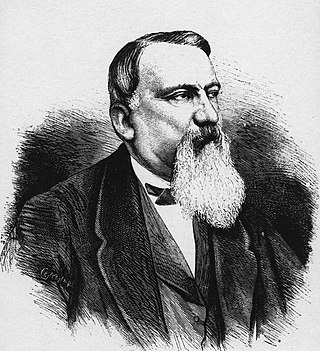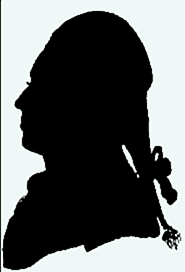
Giuseppe Gazzaniga was a member of the Neapolitan school of opera composers. He composed fifty-one operas and is considered to be one of the last Italian opera buffa composers.

Teseo is an opera seria with music by George Frideric Handel, the only Handel opera that is in five acts. The Italian-language libretto was by Nicola Francesco Haym, after Philippe Quinault's Thésée. It was Handel's third London opera, intended to follow the success of Rinaldo after the unpopular Il pastor fido.
Calandrino is a character from Giovanni Boccaccio's the Decameron, in which he appears in four stories. In these tales he is the victim of the pranks of Bruno and Buffalmacco. He becomes a recurring character in Renaissance literature, especially in Italy.
Giovanni Alberto Ristori was an Italian opera composer and conductor.

Stefano Benedetto Pallavicino was an Italian poet and opera librettist. He was the son of the composer Carlo Pallavicino (1630?-1688).

Bernardo Dovizi of Bibbiena was an Italian cardinal and comedy writer, known best as Cardinal Bibbiena, for the town of Bibbiena, where he was born.

L'arbore di Diana, is an opera in two acts composed by Vicente Martín y Soler, with an original libretto by Lorenzo da Ponte. It premiered at the Burgtheater in Vienna on 1 October 1787.

Maria Antonia, Princess of Bavaria, Electress of Saxony was a German princess, composer, singer, harpsichordist and patron of the arts, known particularly for her operas: Il trionfo della fedeltà and Talestri, regina delle amazoni. She was Electress of Saxony as the wife of Frederick Christian, Elector of Saxony. Following the latter's death in 1763, she became the Regent of Saxony for their son Frederick Augustus I of Saxony.

Teresa Saporiti was an Italian operatic soprano and composer most remembered today for creating the role of Donna Anna in Mozart's opera Don Giovanni. She was born in Milan and died there at the age of 106. In her later years, she was often referred to by her married name, Teresa Saporiti-Codecasa.
Gennaro Astarita was an Italian composer, mainly of operas. The place of his birth is unknown, although he was active in Naples for many years. He began his operatic career in 1765, collaborating with Niccolò Piccinni in the writing of the opera L'orfana insidiata. He became the maestro di cappella in Naples in 1770.

L'empio punito is an opera by composer Alessandro Melani. Notably the first opera written on the subject of Don Juan, the work uses an Italian language libretto by Giovanni Filippo Apolloni and Filippo Acciaiuoli. The opera was commissioned by Marie Mancini for performance during Carnival of 1669. The work premiered at the Teatro di Palazzo Colonna in the historic Borgo district of Rome on 17 February 1669.

Antonio Cagnoni was an Italian composer. Primarily known for his twenty operas, his work is characterized by his use of leitmotifs and moderately dissonant harmonies. In addition to writing music for the stage, he composed a modest amount of sacred music, most notably a Requiem in 1888. He also contributed the third movement, Quid sum miser, to the Messa per Rossini, a collaborative work created by thirteen composers to honor Gioacchino Rossini.

Alberto Mazzucato was an Italian composer, music teacher, and writer.

Carlo Scalzi was an Italian castrato who had an active performance career in major opera houses in Italy from 1718-1738. He was also heard in London in 1733–1734 where he notably created the role of Alceste in the world premiere of George Frideric Handel's Arianna in Creta. The librettist Pietro Metastasio described Scalzi as a "very unique (sic) singer" and likened his voice to that of the famous castrato Farinelli.

Vincenzo Calvesi was an Italian operatic tenor and impresario. A skillful lyric tenor, he began his career performing in opera houses in Italy during the 1770s. He was active in Dresden in 1782 to 1783 and then spent most of his time performing in Vienna from 1785 to 1794. He is best remembered today for creating the role of Ferrando in the world premiere of Wolfgang Amadeus Mozart's Così fan tutte in 1790. That same year the Viennese publication Grundsätze zur Theaterkritik described him as "one of the best tenors from Italy…with a voice naturally sweet, pleasant and sonorous." He was later active in Rome as an impresario up until 1811.

Teatro San Samuele was an opera house and theatre located at the Rio del Duca, between Campo San Samuele and Campo Santo Stefano, in Venice. One of several important theatres built in that city by the Grimani family, the theatre opened in 1656 and operated continuously until a fire destroyed the theatre in 1747. A new structure was built and opened in 1748, but financial difficulties forced the theatre to close and be sold in 1770. The theatre remained active until 1807 when it was shut down by Napoleonic decree. It reopened in 1815 and was later acquired by impresario Giuseppe Camploy in 1819. In 1853 the theatre was renamed the Teatro Camploy. Upon Camploy's death in 1889, the theatre was bequeathed to the City of Verona. The Venice City Council in turn bought the theatre and demolished it in 1894.

Giovanni Paroli (1856–1920) was an Italian operatic tenor who had an active international performance career for four decades. He is best known for creating several comprimario roles in the world premieres of operas by Catalani, Donizetti, Alberto Franchetti, Mascagni, and Verdi.

Il Paride is an opera in five acts composed by Giovanni Andrea Bontempi who also wrote the libretto. The first Italian-language opera to be given in Dresden, it was first performed on 3 November 1662 at the Dresden Castle to celebrate the marriage of Erdmuthe Sophie von Sachsen, the daughter of John George II, Elector of Saxony, and Christian Ernst, Margrave of Brandenburg-Bayreuth. The opera was revived on 21 June 2011 at the Potsdam Sanssouci Festival and on 24 August 2012 at the Tyrolean State Theatre as part of the Innsbruck Festival of Early Music.
La Calandria is a comedy of the Italian Renaissance in five acts written by Cardinal Bernardo Dovizi da Bibbiena in 1513. The plot is based on Plautus' Menaechmi and one of the central character's, Calandro, was borrowed from Giovanni Boccaccio's, Decameron. It premiered in 1513 at the Court of Urbino.















